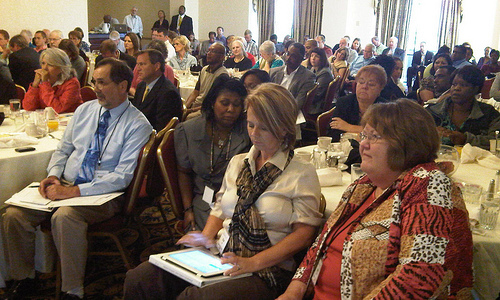Co-written with Carlecia D. Wright
Business diversity policies are alive and well in many cities and counties throughout the U.S. -- and especially in Houston -- according to a new national study we recently helped to complete about public contracting practices with the Insight Center for Community Economic Development.
Indeed Houston's approach to the issues positions it as one of the nation's leading municipalities for promoting business diversity.
Key findings from the Insight Center study reveal some important best practices in this space. These include:
- eliminating discrimination at every stage of the procurement process;
- setting specific performance goals and benchmarks;
- promoting comprehensive public outreach and set aside programs; and
- creating pathways to help small diverse firms grow from sub-contractors to prime contractors
These are aims that all Americans should support, since we are all ultimately better off when we encourage every individual and group to succeed in private enterprise -- the bedrock of our productive capacity as a nation.
In the normal course of business, local governments purchase tens of billions of dollars in goods and services each year. City and county Minority and Women-Owned Business Enterprise (MWBE) programs help diverse small business owners get a fair share of that pie by asking government departments to contract with them for goods and services when the owners are under-represented in contracting awards.
Similarly, Small Business Enterprise (SBE) programs give a running start to the kinds of smaller businesses that diverse business principals typically own.
These inclusive business programs require contractors or suppliers to make a good faith effort to utilize diverse small business owners as sub-contractors, incentivize diverse owners to bid on contracts and build the growth potential of participating small businesses.
By distributing income and assets more evenly throughout a region, inclusive business programs are one of the most proactive ways to address economic and racial inequality and grow the economy.
The Insight Center study titled, "Economic Development in Diverse Communities: Inclusive Business Procurement in Cities and Towns," examines 40 cities and counties across the United States, selected for their large populations and geographic diversity, to determine trends and best practices in the field. The study reveals the dynamic reach, evolution and impact of these programs toward regional economic vitality.
Of the jurisdictions reviewed, nearly 90 percent have SBE and/or MWBE programs. Of the 20 cities surveyed, three out of four support some form of MWBE program.
Some studies estimate that small businesses employ as much as 70 percent of all workers nationally, but small businesses increasingly struggle to compete with multinational corporations headquartered far away. SBE programs help local small businesses become stronger. They also help to increase the local tax base and ameliorate pockets of poverty.
Unfortunately, long-standing racial and gender discrimination continues to prevent many minorities and women from creating and sustaining small businesses that improve regional economies. Members of these groups are often dragged down by inadequate access to business networks, role models, training, assets, credit and other resources. MWBE programs help to level the playing field by providing access to resources that allow minority businesses to compete and thrive.
By 2042, a majority of our national population will be people of color. Women -- over half the population -- are increasingly participating in the workforce and leading businesses. Given these major demographic transformations, leaders must invest now to support the next generation's business success. Encouraging economic inclusion translates into more economic growth for the entire population by bolstering the region's ability to compete nationally and globally.
Inclusive business programs need to be expanded to ensure equitable procurement and economic vitality. Good government practices in the field, as revealed in the Insight Center study, should be standardized and replicated to improve the quality of inclusive business programs.
With proven practices that strengthen local economies through wise capital allocation, MWBE and SBE programs are a ready means of advancing traditional American values of industry, fairness and opportunity. The better these innovative, diverse businesses do, the better we all do as Americans.
_________________________
Carlecia D. Wright is Director of the City of Houston's Office of Business Opportunity.
Henry A. J. Ramos is President of the Insight Center for Community Economic Development

